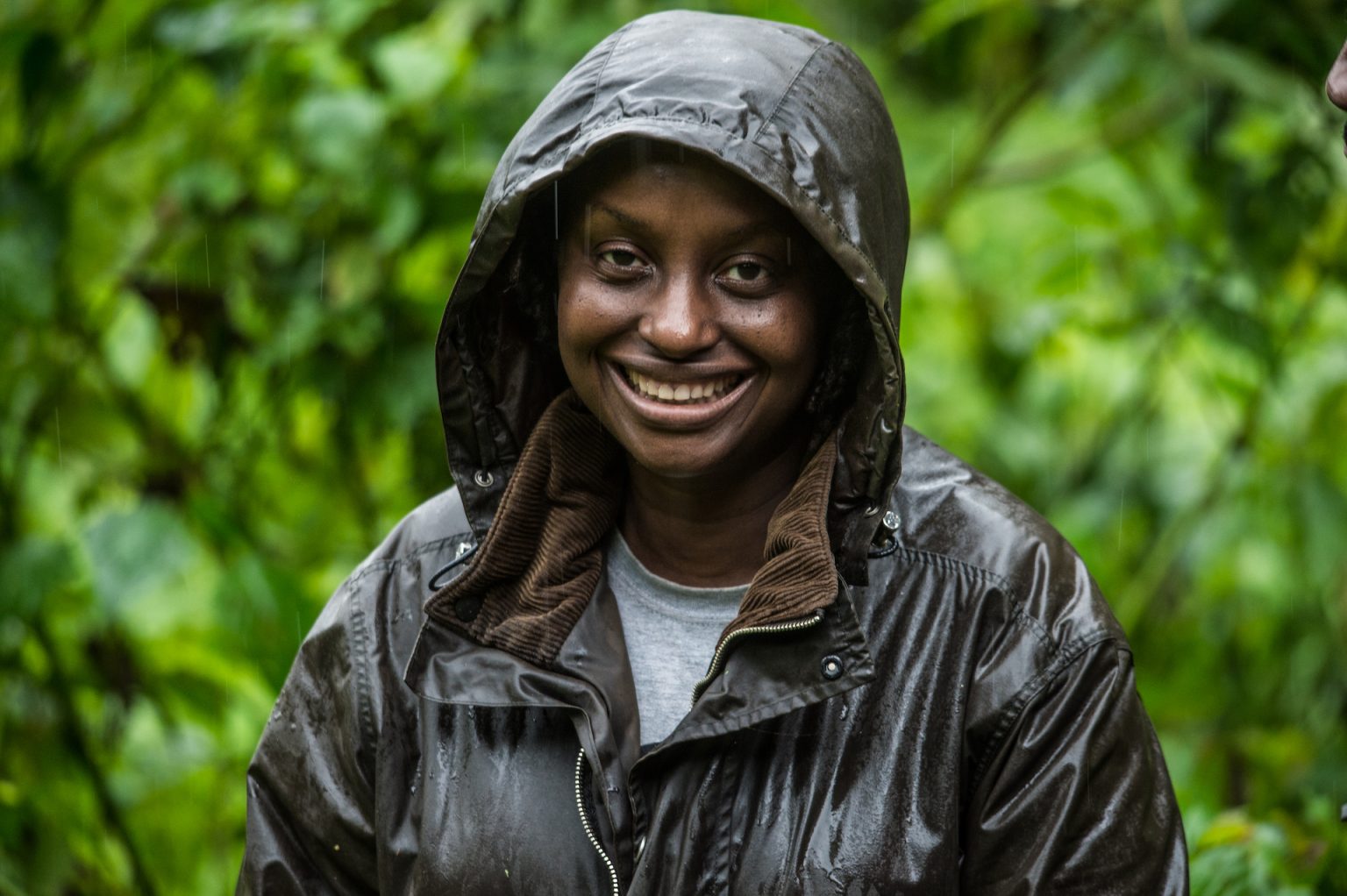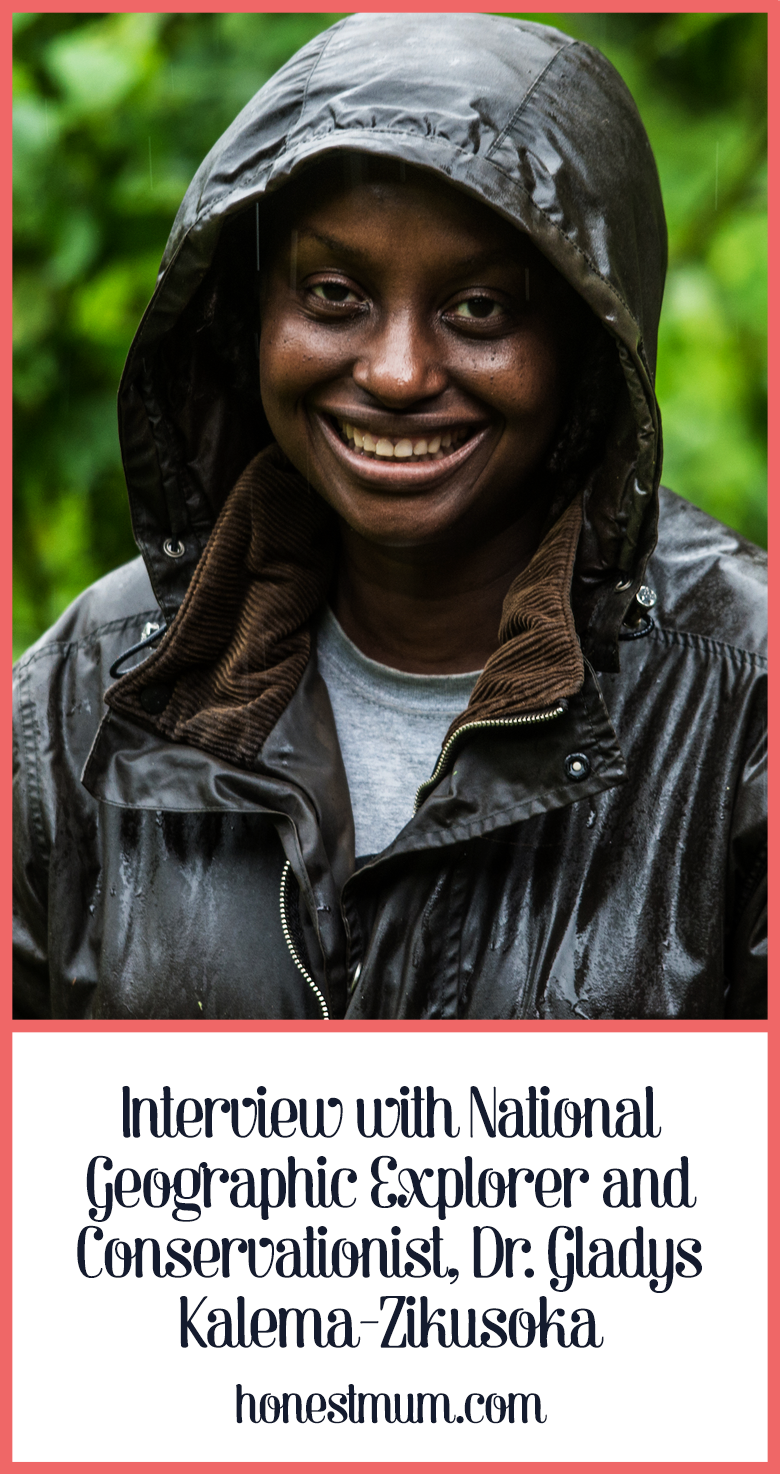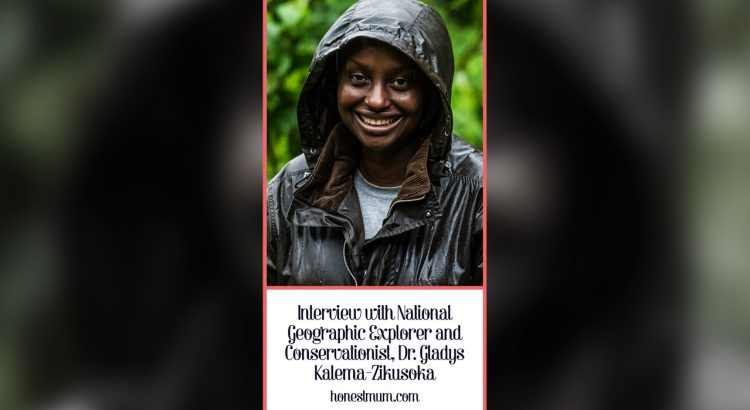
Dr. Gladys Kalema-Zikusoka is a National Geographic Explorer and multi-award-winning conservationist who has been a life-long champion of wildlife. As an African woman growing up in a male-dominated society, she found the determination and courage to overcome the many obstacles she faced due to her gender to become Uganda’s first wildlife vet.
Not one to rest on her laurels, after leaving the Ugandan Wildlife Authority, she followed her heart and founded her NGO, Conservation Through Public Health, and the social enterprise, Gorilla Conservation Coffee to preserve the endangered mountain gorillas, create health and prosperity for the local human community and be a caretaker for our planet.
Describe a typical day for you?
I don’t have a typical day. As founder and CEO of a small but growing 17-year-old grassroots NGO, Conservation Through Public Health (CTPH), based in Uganda, that works to ensure that the mountain gorillas are healthy and their habitats are secure, I have a long to-do list and wake up each day to prioritize it. I also wear several hats as a leader where I sit on a number of boards including, The Gorilla Organization based in the UK, and committees including the Women for Environment – an Africa leadership council advocating for greater female leadership in conservation.
My husband, Lawrence Zikusoka is a co-founder of our two main initiatives, Conservation Through Public Health (CTPH) and our social enterprise, Gorilla Conservation Coffee. We often start the day by comparing notes on what we plan to do.
The best part of my job is spending time at our field office in Bwindi Impenetrable National Park, home to just under half of the world’s endangered mountain gorillas. A typical day involves getting up earlier than usual to check on the gorillas, and other days involve hosting and attending meetings with field staff and community volunteers including Village Health Teams, Gorilla Guardians and Reformed Poachers who encourage their community to protect the gorillas, and who we support along with the rest of the local community with improved healthcare and livelihoods so that they can coexist with the gorillas and other wildlife. I am also a mother to two energetic sons, aged 16 and 11 who travel with me to the national parks as often as possible, where we spend amazing quality time together.
When I am at CTPH headquarters in Entebbe, I often spend my day responding to emails about day-to-day operations and new enquires, thanking our donors and supporters through email and social media, writing or reviewing grants, reviewing and sending reports to donors, the government and other stakeholders on the work we have done, reviewing and designing new projects and mentoring and inspiring my team in their work.
Prior to COVID-19, I spent 25% of my time travelling around the world presenting and raising funds for our work. Lately, I have been invited to sit on a number of virtual meetings, giving several presentations because our One Health approach is helping to reduce the impact of the COVID-19 pandemic on endangered mountain gorillas at Bwindi Impenetrable National Park, as well as other great apes in Africa via advocating for responsible tourism.
One highlight has been finding our first UK distributor for our Gorilla Conservation Coffee, Moneyrow Beans who have made it possible for us to continue to support local coffee farmers in the absence of an income from gorilla trekking tourists during the pandemic. This has helped to reduce their need to enter the gorilla habitat for food and firewood at a time when bushmeat poaching has greatly increased all over Africa. We have also had to begin a new program of providing emergency food relief for vulnerable communities around the park, which became more urgent when one of the gorillas was killed by a hungry and desperate poacher.
What do you feel are your greatest achievements?
One of my greatest achievements has been establishing an award-winning NGO that is positively impacting some of the poorest people sharing a habitat with gorillas and other wildlife, and contributing to the growth of the mountain gorilla population from 600 when I first started working with them, to 1063.
One of our first awards was the 2009 Whitley Gold Award for outstanding leadership in grassroots nature conservation which was presented to me by HRH Princess Anne. I was also greatly honored to become a finalist for the Tusk Award for Conservation in Africa in 2019, where we were hosted by the Duke and Duchess of Cambridge at Kensington Palace which caused a lot excitement among friends, colleagues and family in Uganda. This year, our charity Conservation Through Public Health won the prestigious 2020 Saint Andrews Prize for the Environment, an achievement we are very proud of.
Our social enterprise, Gorilla Conservation Coffee, also won the 2017 United Nations Environment Programme (UNEP) Switch Africa Green SEED Award for eco-inclusive enterprises, and second prize at the 2019 Italian StartUpAfrica Road Trip Award.
In August, I was honored to receive the 2020 Aldo Leopold Award from the American Society of Mammologists, and truly humbled to be the first African to receive it and the second woman.
What’s in your handbag/satchel?
Lip balm, fragrance and hand cream from the Body Shop where I have been shopping since 1990. I was drawn to this business because they do not test on animals and now also support women and sustainable businesses globally. I also carry a phone, sunglasses, contact lens solution and glasses (I am very short-sighted), a notebook, pens of different colors and at least one reading book. Other essential items since the COVID-19 pandemic began, include hand sanitizer and a range of cloth masks made by local women from a local enterprise, Ride for A Woman enabling them to earn an income to support their families sharing a habitat with the gorillas in the absence of tourism.
What are your ambitions in life?
I would like to expand our impact to other countries in Africa where gorillas are found and other parts of Uganda where gorillas are not found, working with local stakeholders. Something else I feel strongly about is to help increase the number of women leaders in conservation through my role on the leadership council of Women for the Environment – Africa, and leaders of color in conservation in my role as the Vice President of the African Primatological Society that is building African leadership in primate research and conservation.
I am currently writing a book about my experiences in conservation and leadership journey with gorillas and other wildlife over the past 30 years, which I hope to get published next year. It’s something I have been wanting to do for many years and excited that it is finally happening. I have found a great literary agent, Naz Ahsun, who is very supportive.
What do you wish you’d known at the start of your career you now know?
It is important to choose a career based on something you truly care about because when the going gets tough, what keeps you going is your passion and purpose. I have found that you will never be able to please everyone all of the time, especially if you want to make a difference and change the world. When you work alone you go fast, when you work with others you go far; I have learnt the importance of teamwork, having a motivated team, and building partnerships with external stakeholders. As a founder of an NGO and social enterprise, I have also learnt to place values ahead of talent when hiring people. On a personal note, I have learnt how important it is to be an authentic leader, and strive to develop a healthy work/life balance.
Where do you see yourself in 5 years’ time?
I see myself stepping down from being the CEO of our NGO and social enterprise and devoting more of my time on the Board, spending more time growing as a leader and mentoring my team, and others in my sector. I also see myself spending more time advocating for our approach to a wider audience in Africa and the rest of the world. I am humbled to be a finalist of the 2020 Tällberg Eliasson Global Leadership Prize because of our One Health approach to Conservation.
What advice would you give a budding Vet?
Veterinary training enables you to impact many sectors if you would like to take up these amazing opportunities. It has been a truly interesting and rewarding journey for me to be able to make a difference in conservation, public health, tourism, and agriculture sectors through my training as a veterinarian.
What advice would you give to a new parent?
Enjoy parenthood, don’t try to be a perfect parent, spend as much time as possible with your children because they change so fast during the first few years and two decades of their life, and you don’t want to miss many of those moments in helping to shape their values. My eldest son recognised his first elephant at the age of two, in the national park, not in a storybook. Let them follow their passion and be who they want to be and encourage them to be authentic, build their leadership qualities, and fulfill their potential in life. I am truly indebted to my mother, who on top of being a hands-on mother and grandmother, encouraged me to follow my dream to pursue a career with animals because she realised that from an early age, I hated to see them suffering, and even when being a Vet in Uganda was not a profession that paid well, and I am truly indebted to her for that.
Finally, happiness is…
Being true to yourself and leaving the world better than you found it….

